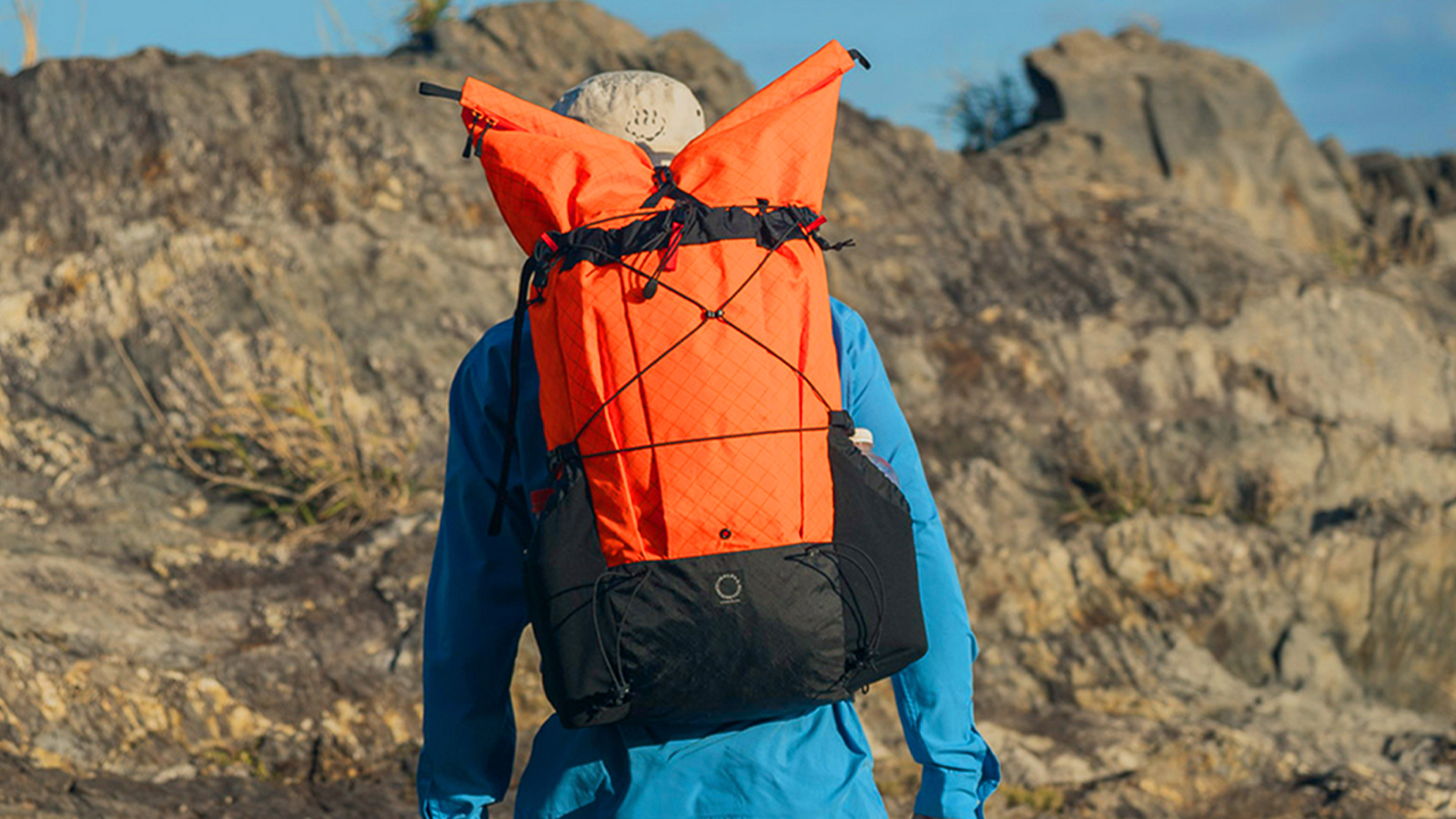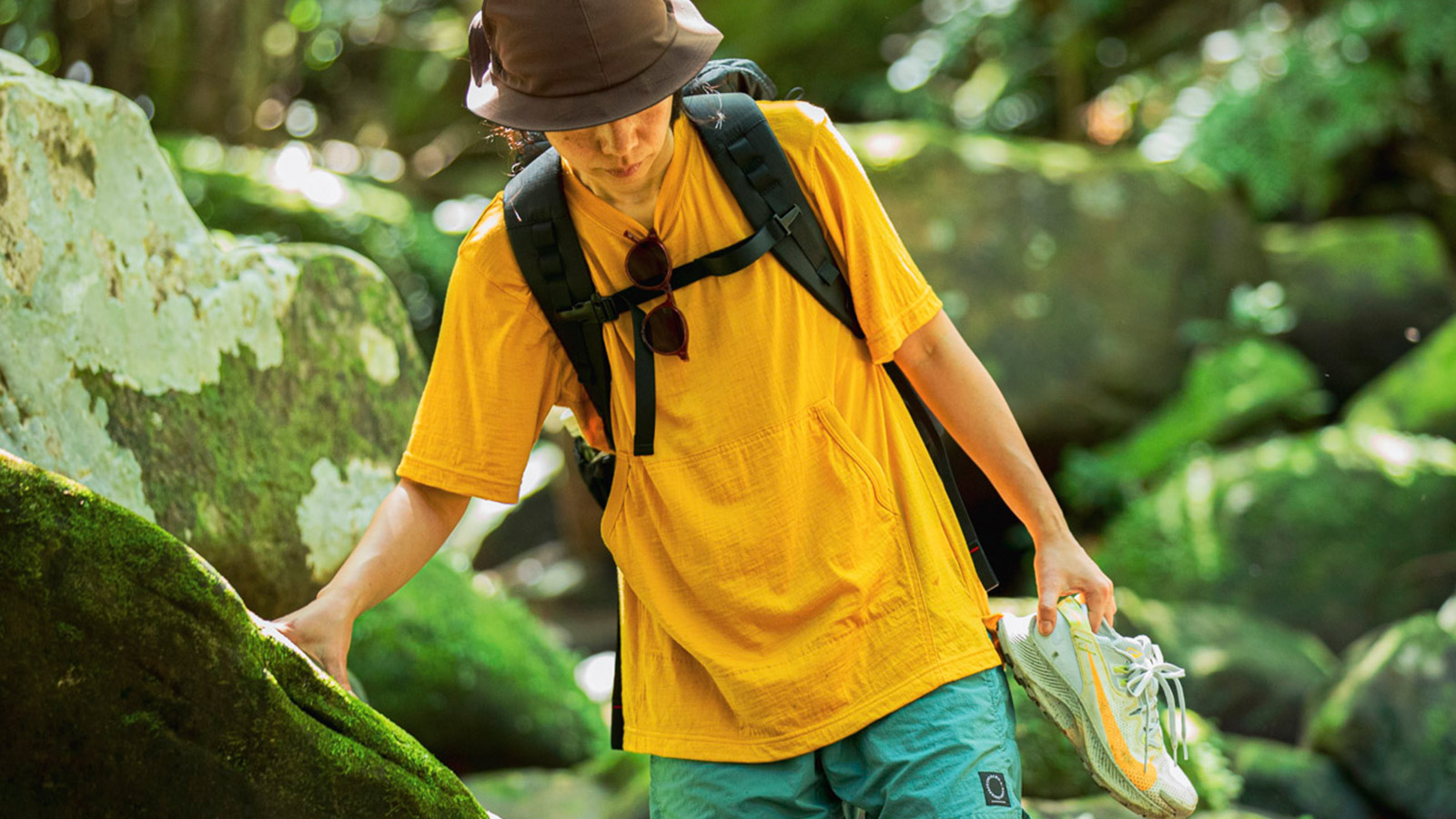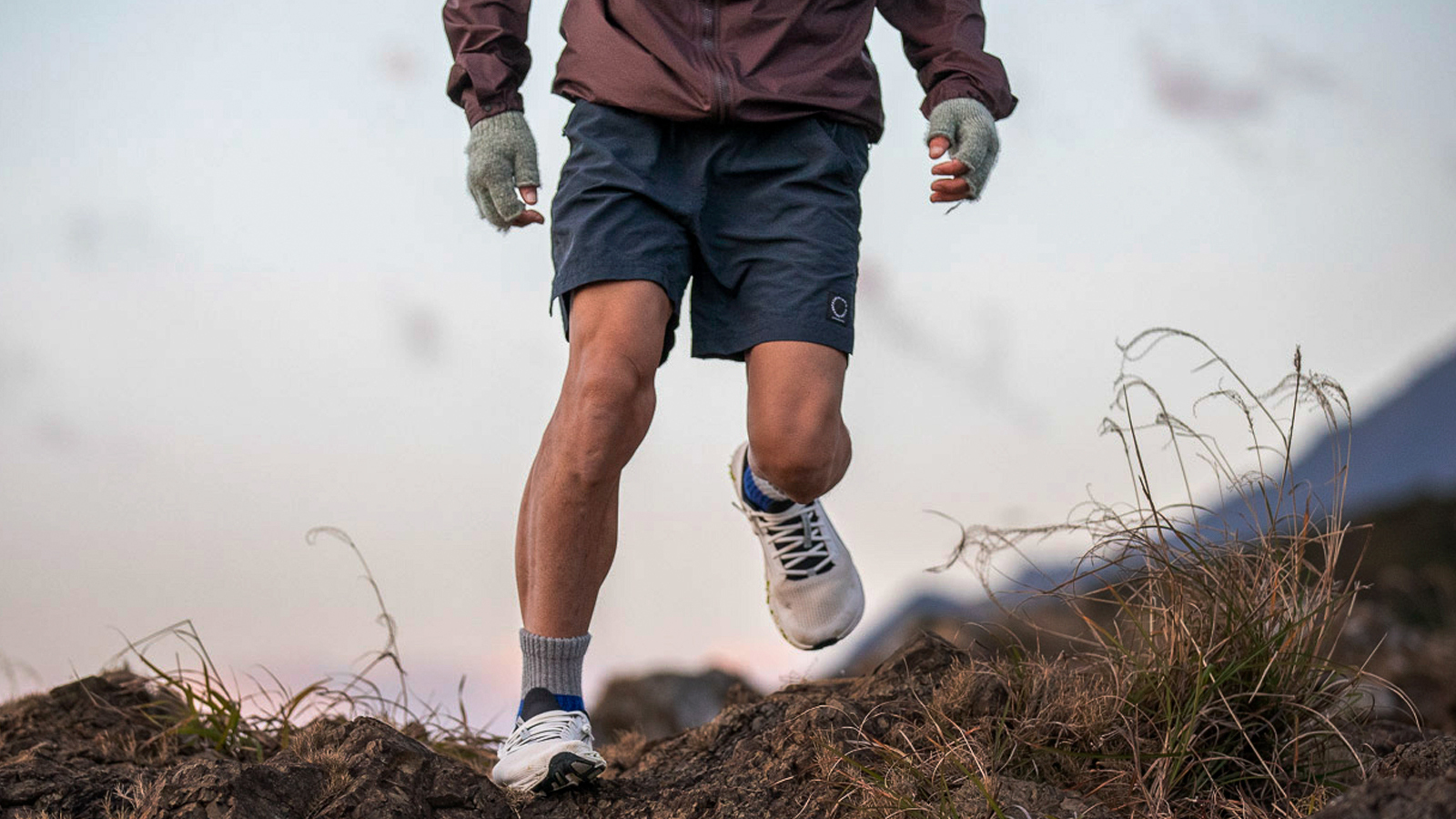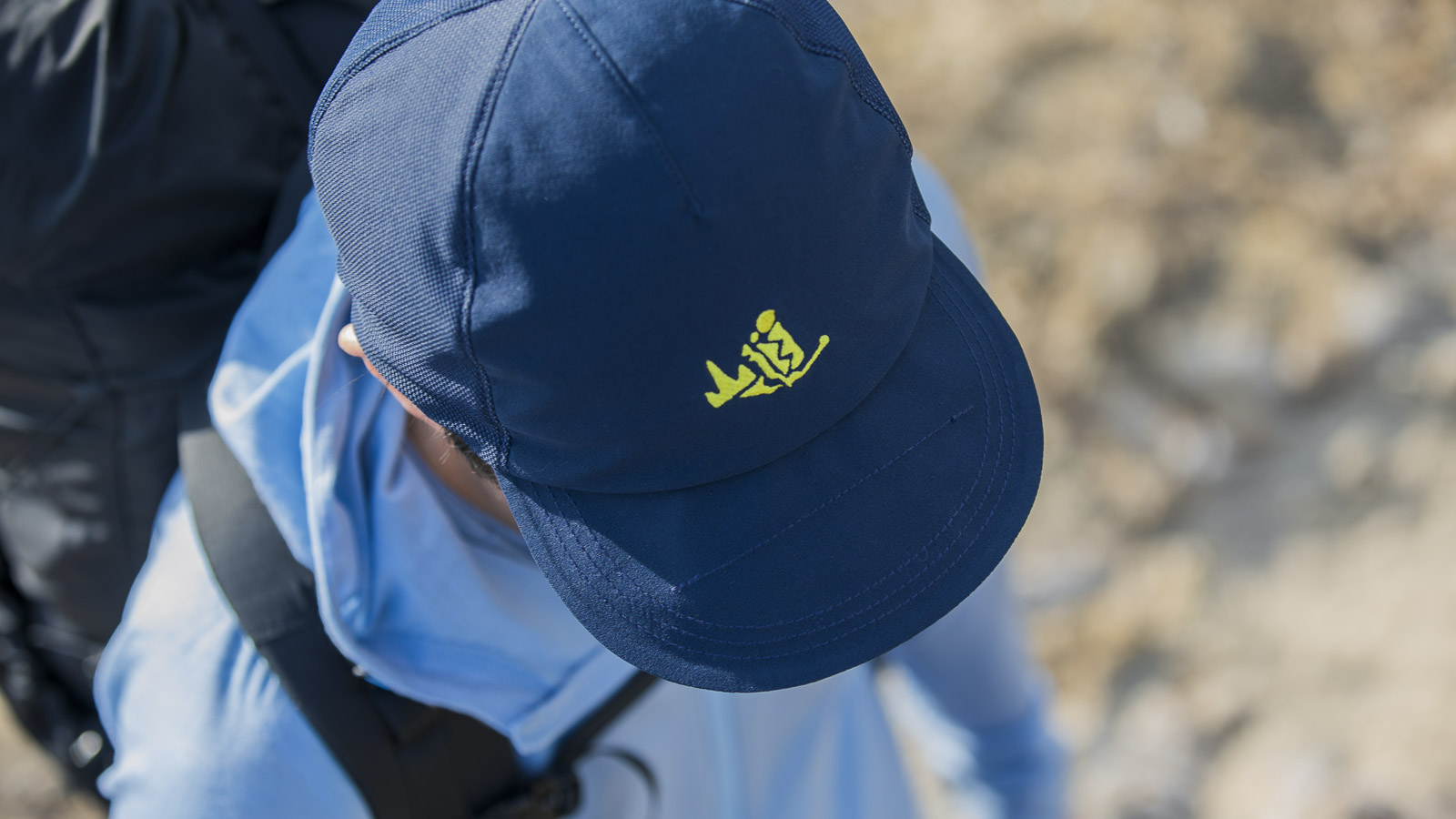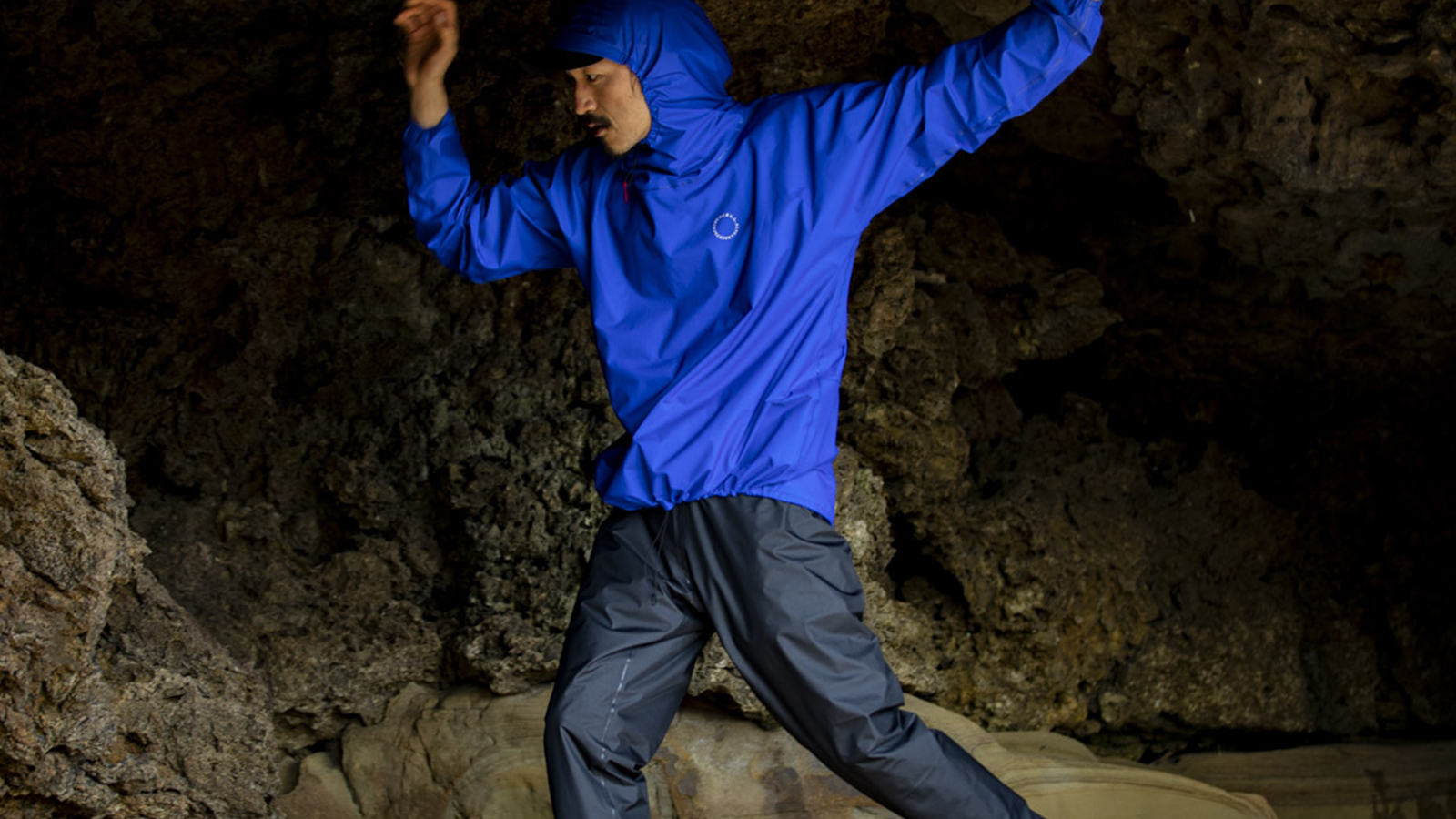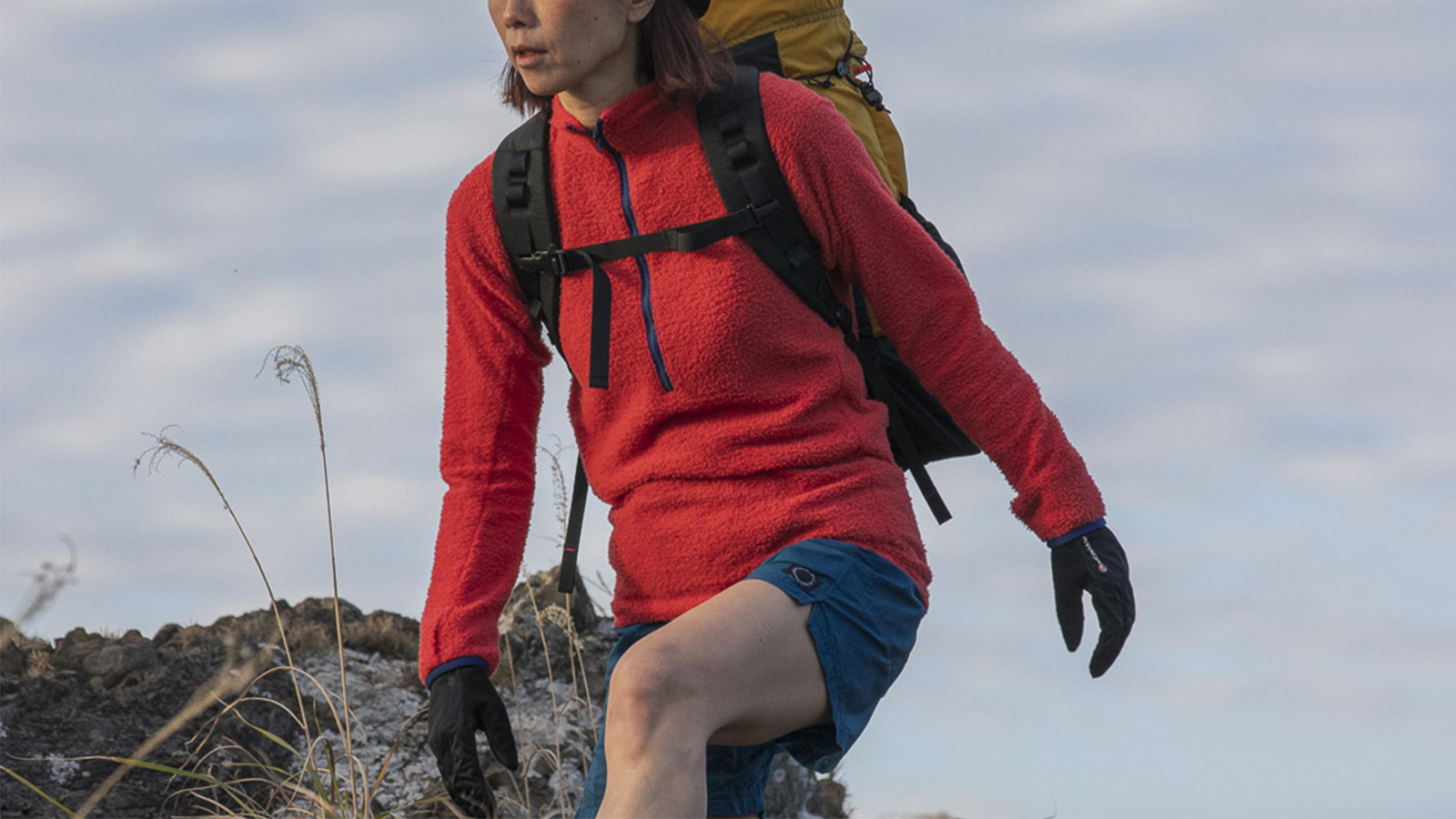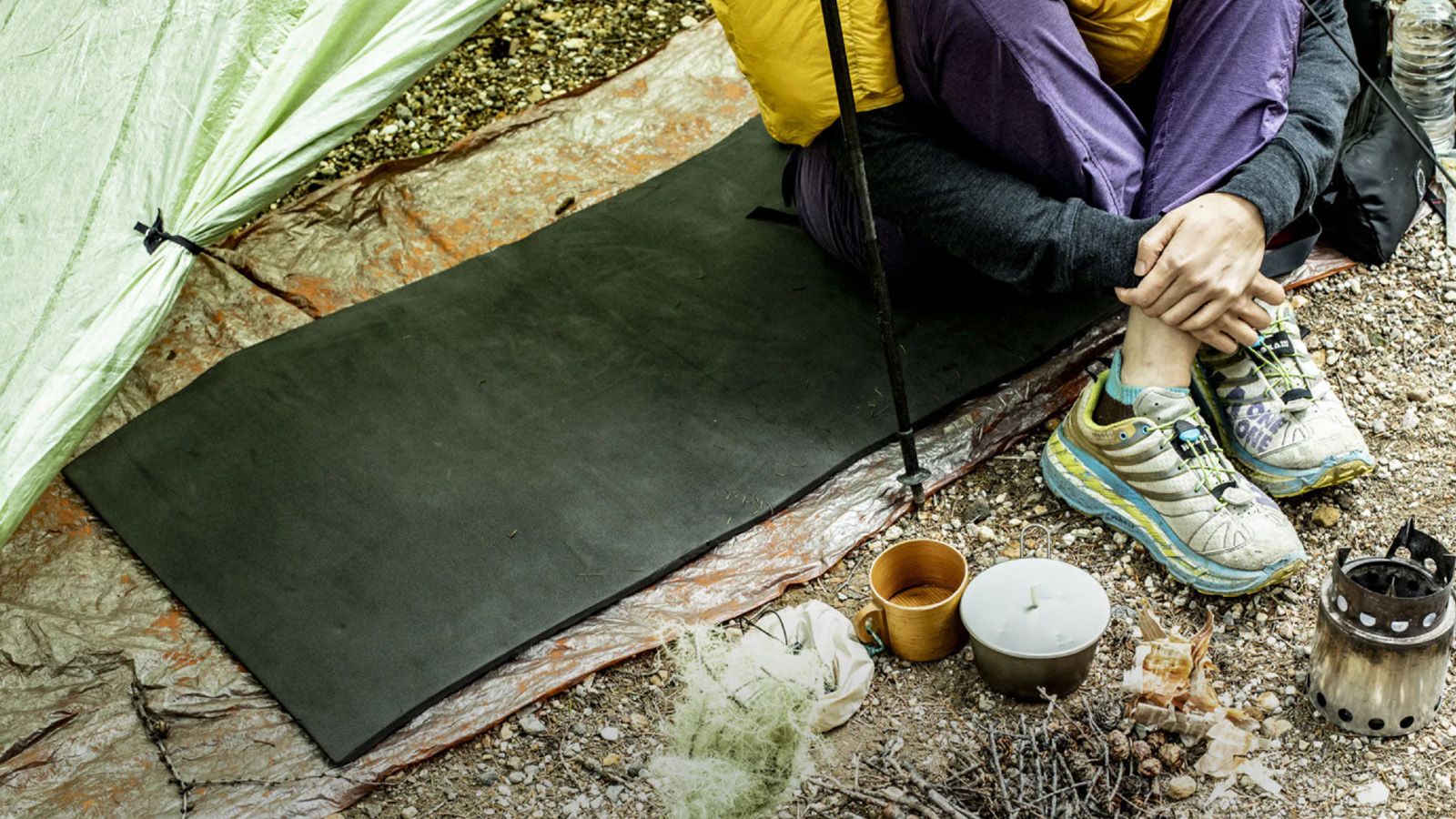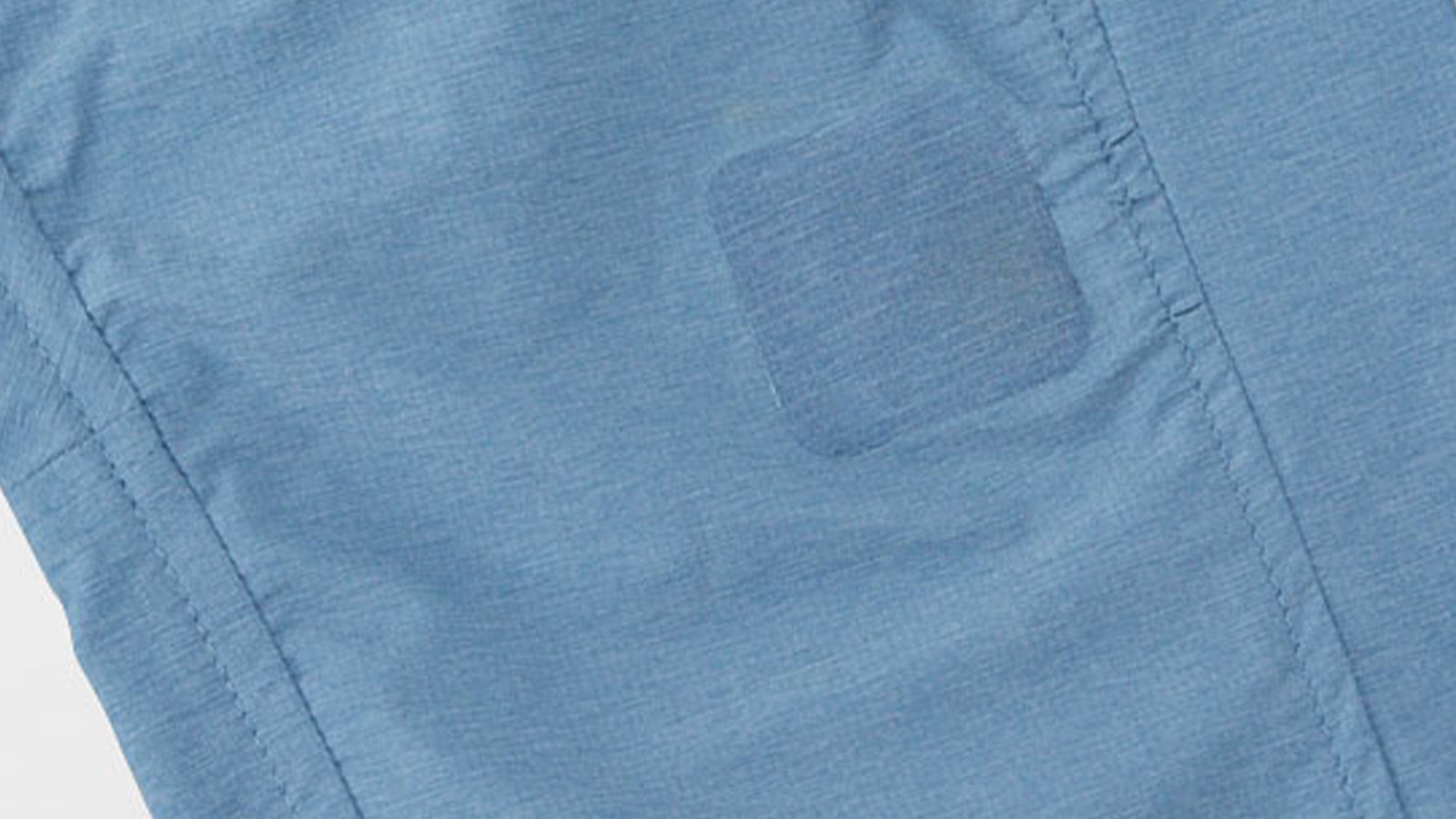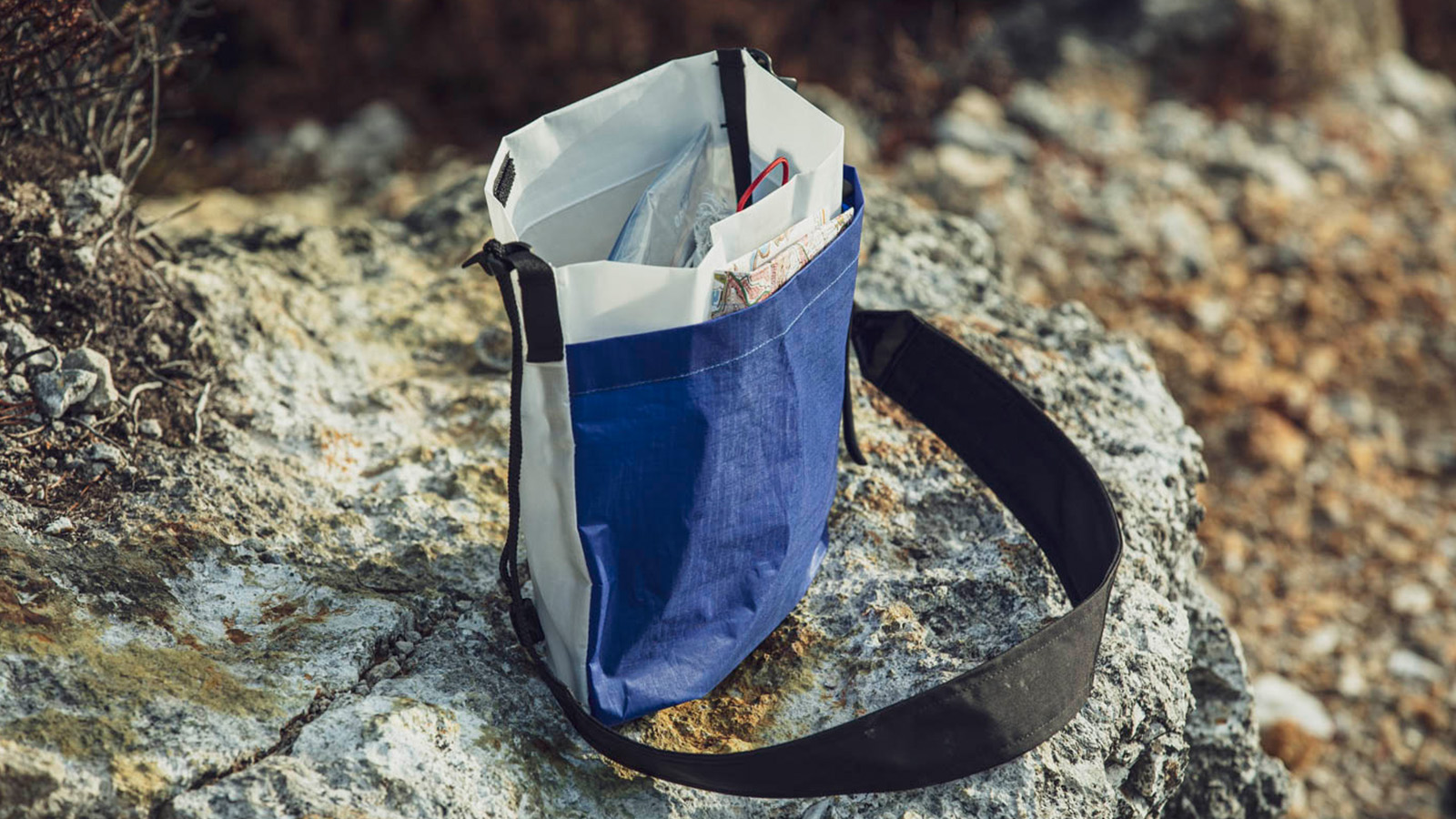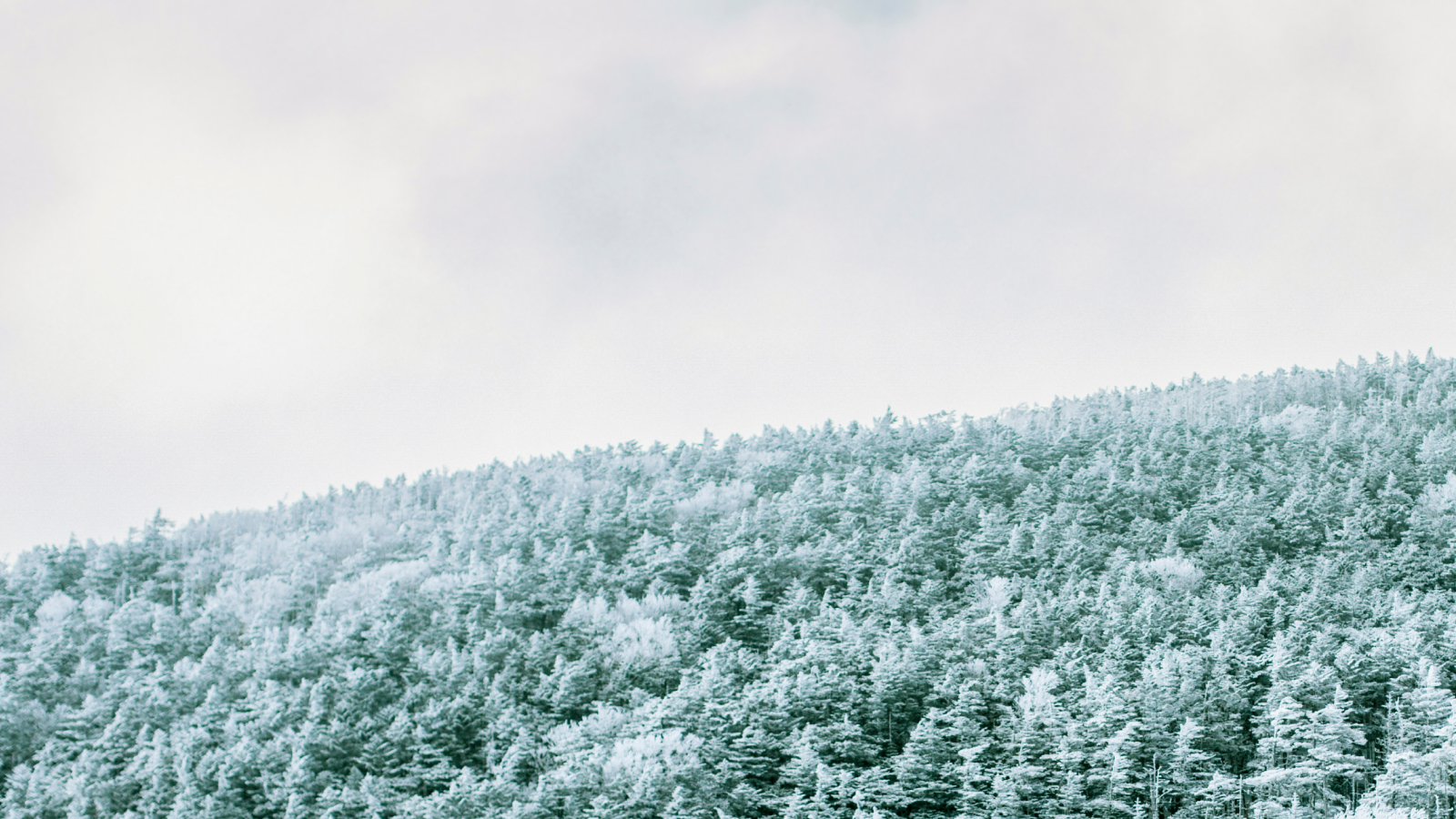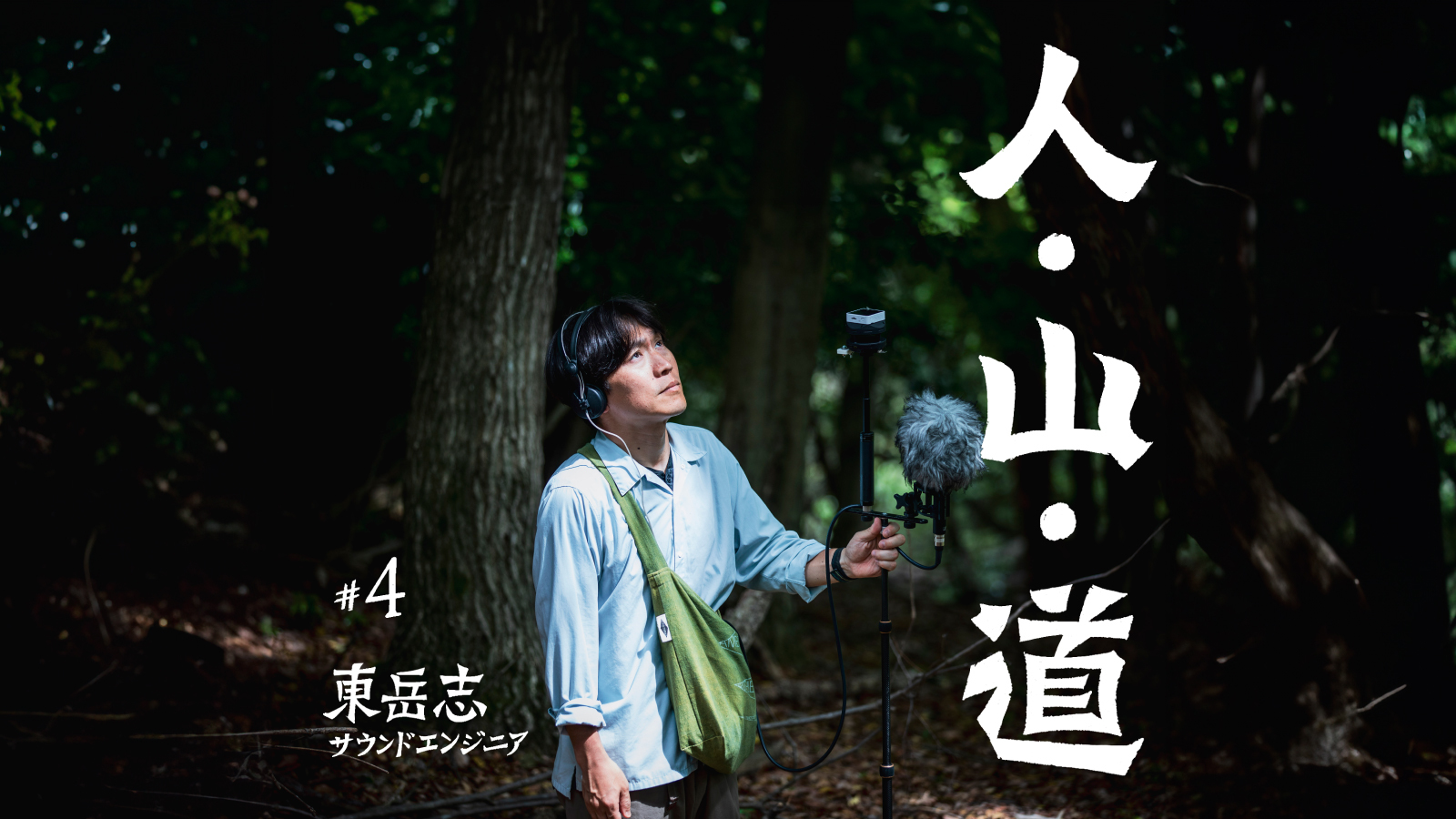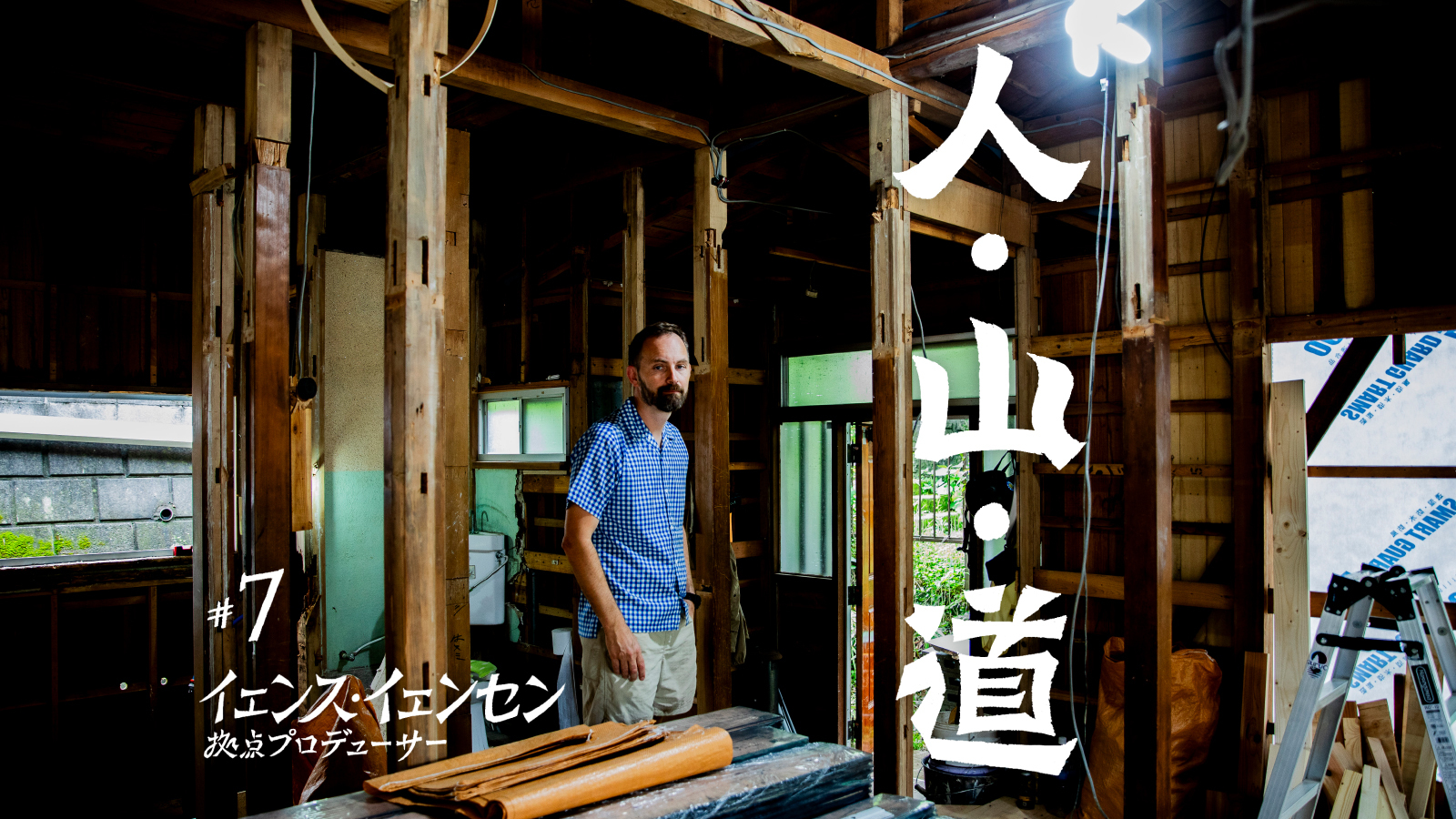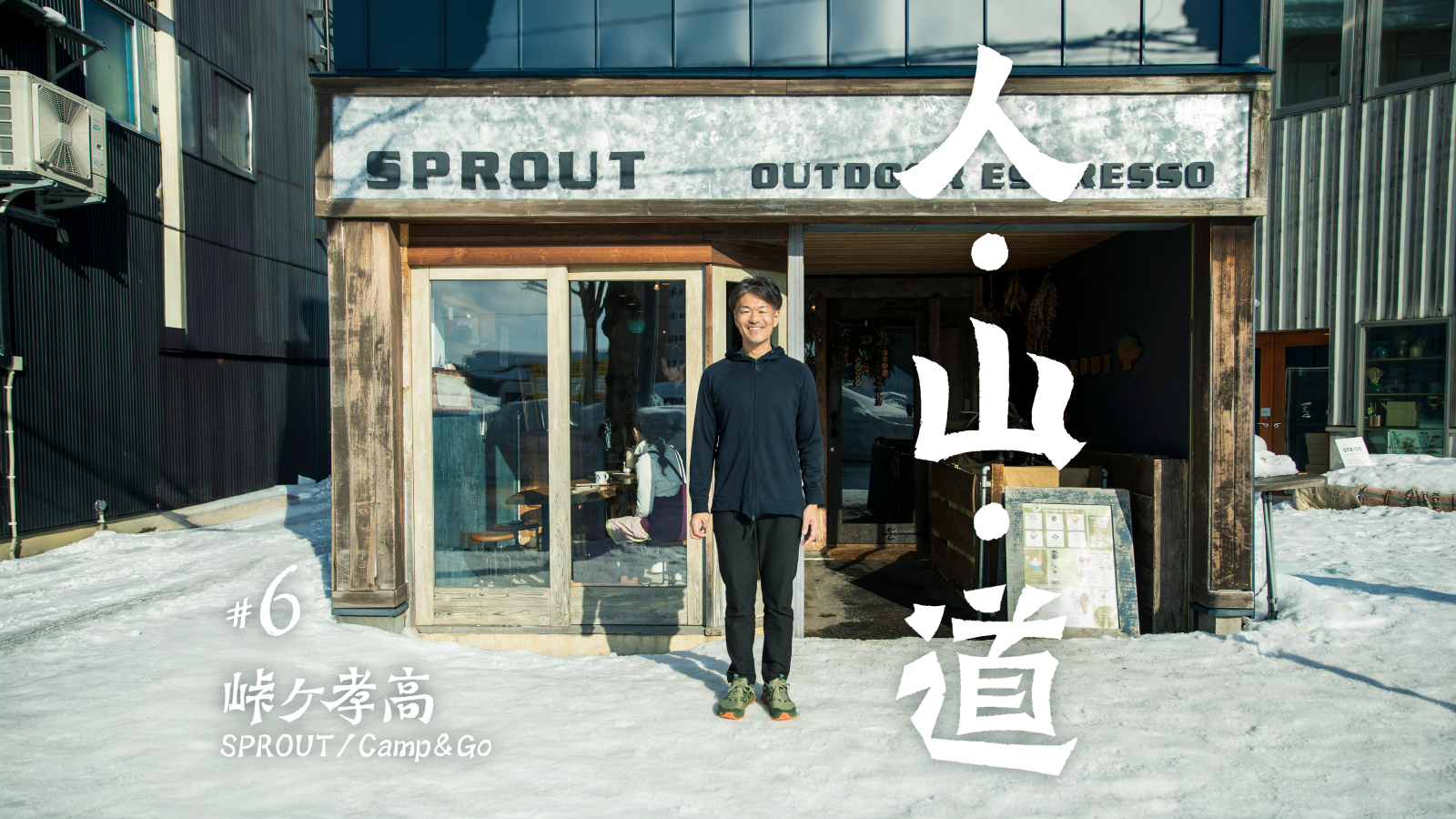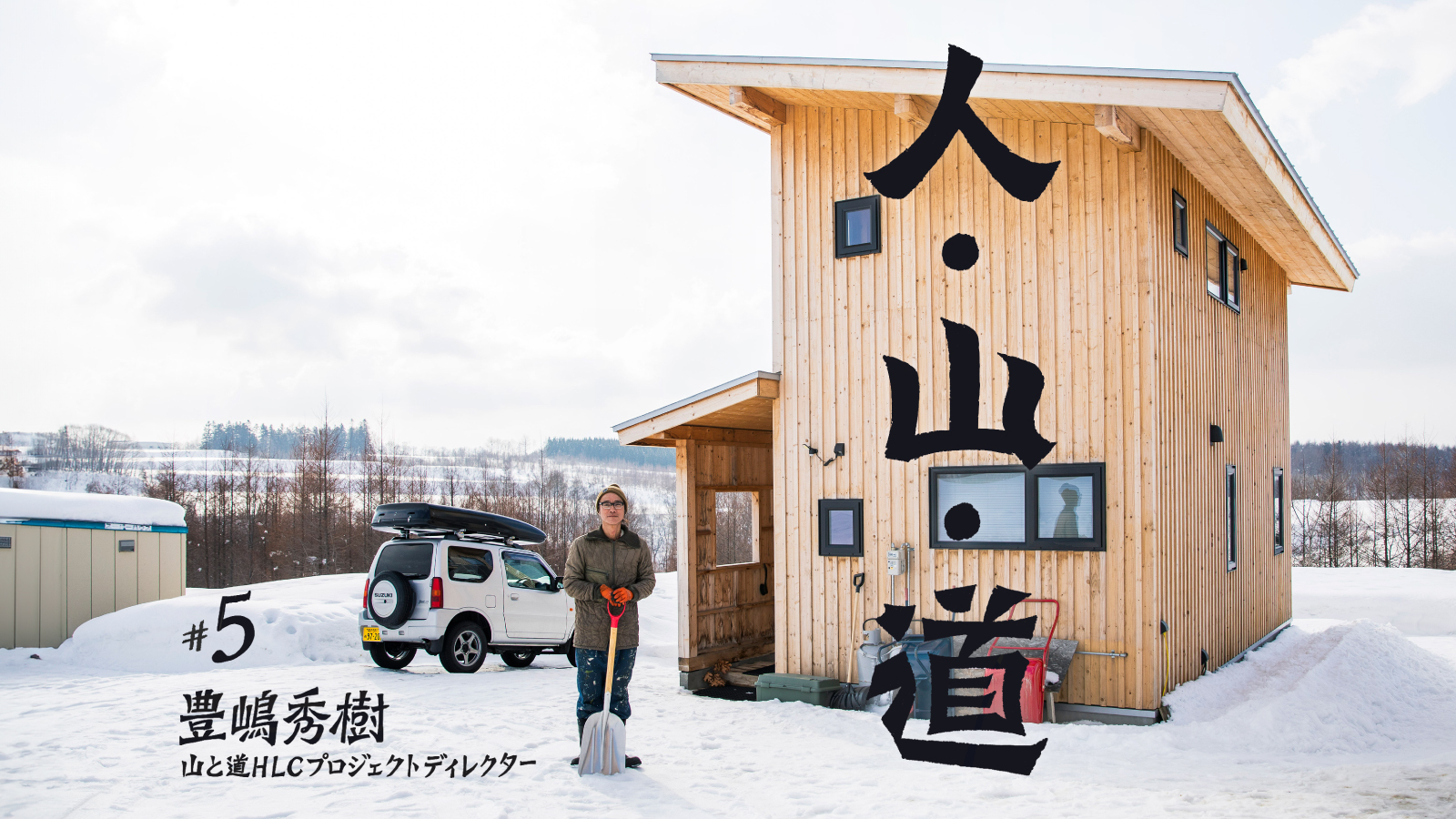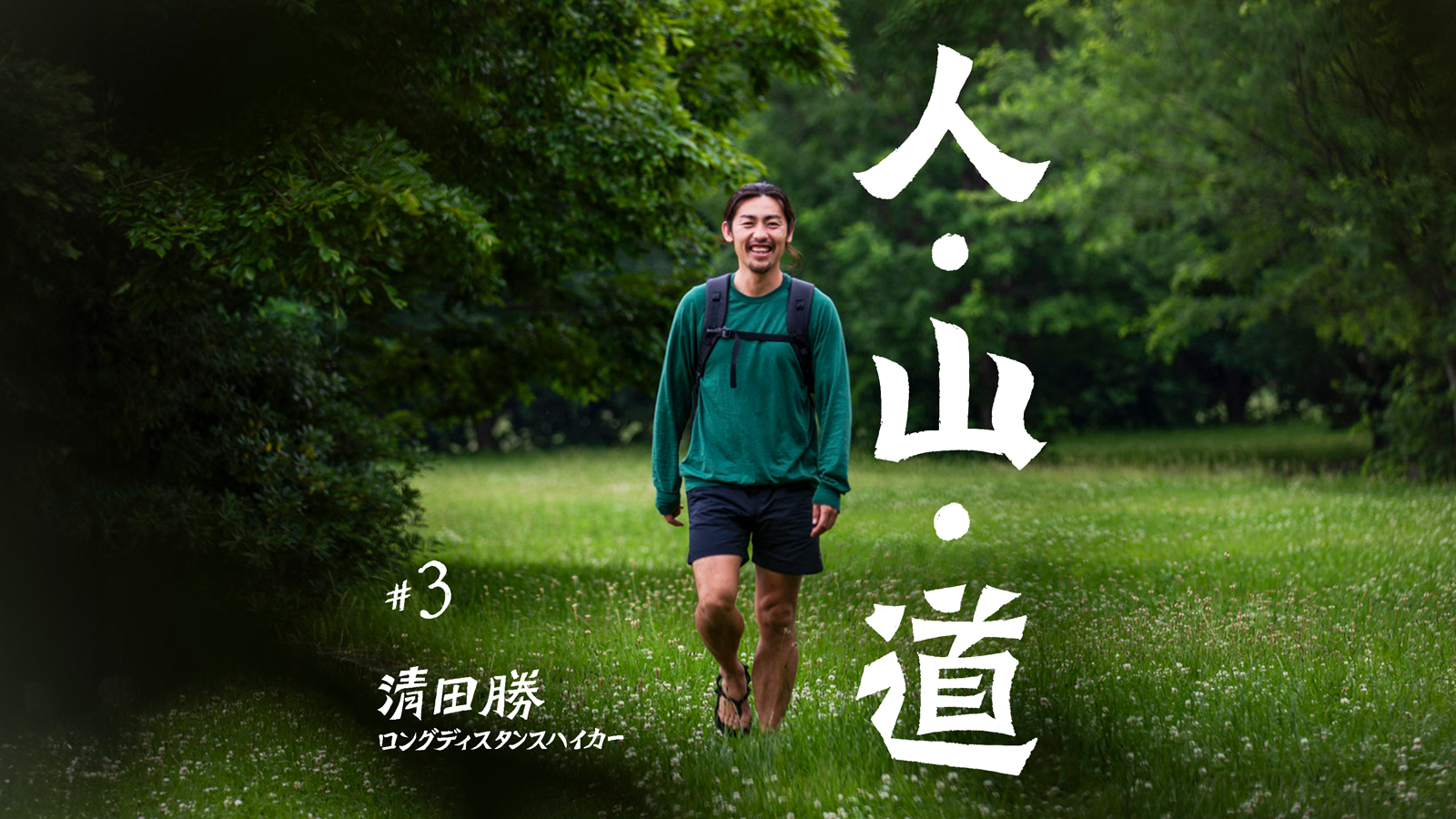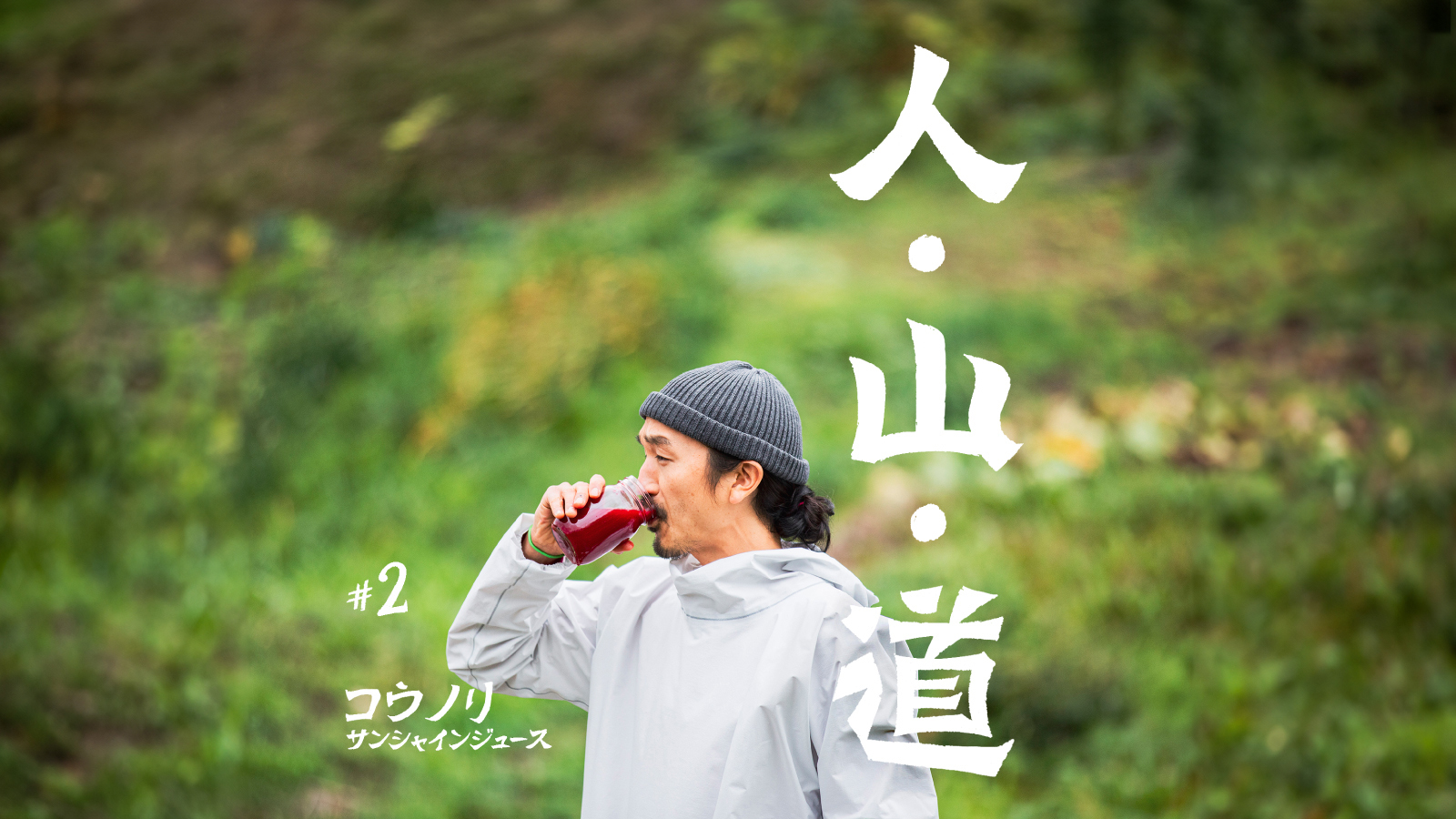#3 Masaru Kiyota
(Long-Distance Hiker)
Photography: Masaaki Mita
#3 Masaru Kiyota
(Long-Distance Hiker)
Photography: Masaaki Mita
In People, Mountains, Paths: The UL Way, we interview artists, designers, hikers and entrepreneurs whose lives and work intersect with Yamatomichi. We ask them how they chose the path they walk and the things they carry with them –– a theme that is at the core of the ultralight hiking ethos. The third guest in this series is Masaru Kiyota, owner of cafe & bar peg., in Osaka’s Fukushima ward, and a Triple Crown hiker who has completed the three major long trails in the US –– the Appalachian Trail, Pacific Crest Trail and Continental Divide Trail –– a total of 12,700 km spanning 22 US states. He describes himself as someone who was “not very interesting during his student days.” How did he become a traveler and choose a life of walking? After a decade of traveling and hiking, how does he see himself?
In Awe of Adventurers
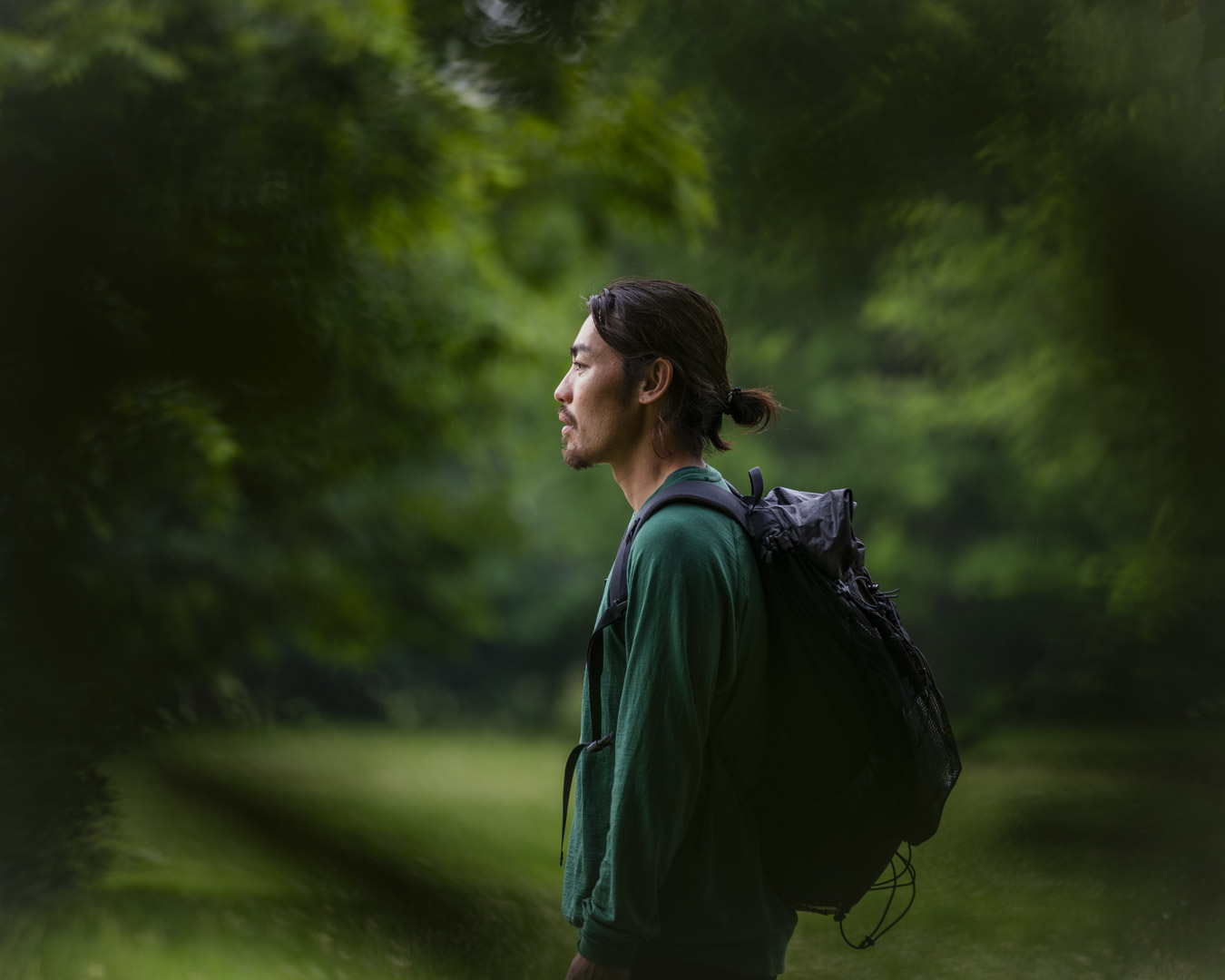
Masaru Kiyota, owner of peg., a cafe and bar in Osaka, and Triple Crown long-trail hiker
In 2017, Masaru Kiyota was walking along the Pacific Crest Trail, one of three major long trails in the US, when he had an epiphany.
At the beginning of his journey, he had been captivated by the arid landscape of southern California and snow-blanketed Sierra Nevada mountains. But now, weeks later, the thrill had faded, giving way to something else. “I started feeling like I’d seen enough scenery,” he said. “I was just walking, and it was extremely monotonous. Every day: eat, walk, sleep. I was taking one step after another, and the scenery wasn’t changing dramatically. A friend who introduced me to trails had once said, ‘It’s not about the scenery.’ At the time, I remember thinking, ‘What do you mean by that?!’”
Masaru had first learned about the PCT –– which stretches 4,265-km, from Mexico to Canada through California, Oregon, and Washington –– the previous year, from a hiker while traveling in South America. The fact that someone could cover so much ground on foot made Masaru want to attempt a long walk of his own.
At that point in his life, Masaru (then 27) wasn’t yet what he is today: owner of cafe & bar peg. in Osaka’s Fukushima ward, experienced long-trail hiker, host of his own podcast (Chizu no Nai Michi, or Path Without Maps) and prolific contributor to Yamatomichi Journals. Back then, he had already put travel at the center of his life. But he had yet to work through the things that were driving his itinerant lifestyle. Travel was a way for him to escape a conventional post-university company job; avoid his parents’ expectations for him; and get a taste of adventure that he’d been in awe of since getting hooked on documentaries about mountain expeditions and survival races while in college.
Masaru had completed his first extended walk at the end of a two-year round-the-world journey in 2016: the 825-km Camino de Santiago pilgrimage trail in Spain. That had led him to begin reassessing his idea of traveling in order to visit tourist spots.
The PCT was only his second long walk. By the time Masaru had walked 1,000 km of the PCT, his friend’s comment –– that trails aren’t about the scenery –– had begun to sink in. Being on the long trail made him feel like he was “mentally stripping things away, paring down to the essentials.” It brought a kind of clarity.
“Everyone who walks has their own answer. For me, the trail brought a series of goodbyes and reunions over long distances, moments when I received love and support from trail angels” –– people who help hikers by providing restrooms, water, directions, lodging and more –– he said. “There were also times when I confronted myself. There were tough, painful moments and joyous ones. Until then, I had thought of traveling as collecting experience and gaining perspective.”
“I started to envision what was truly important to me,” he said.
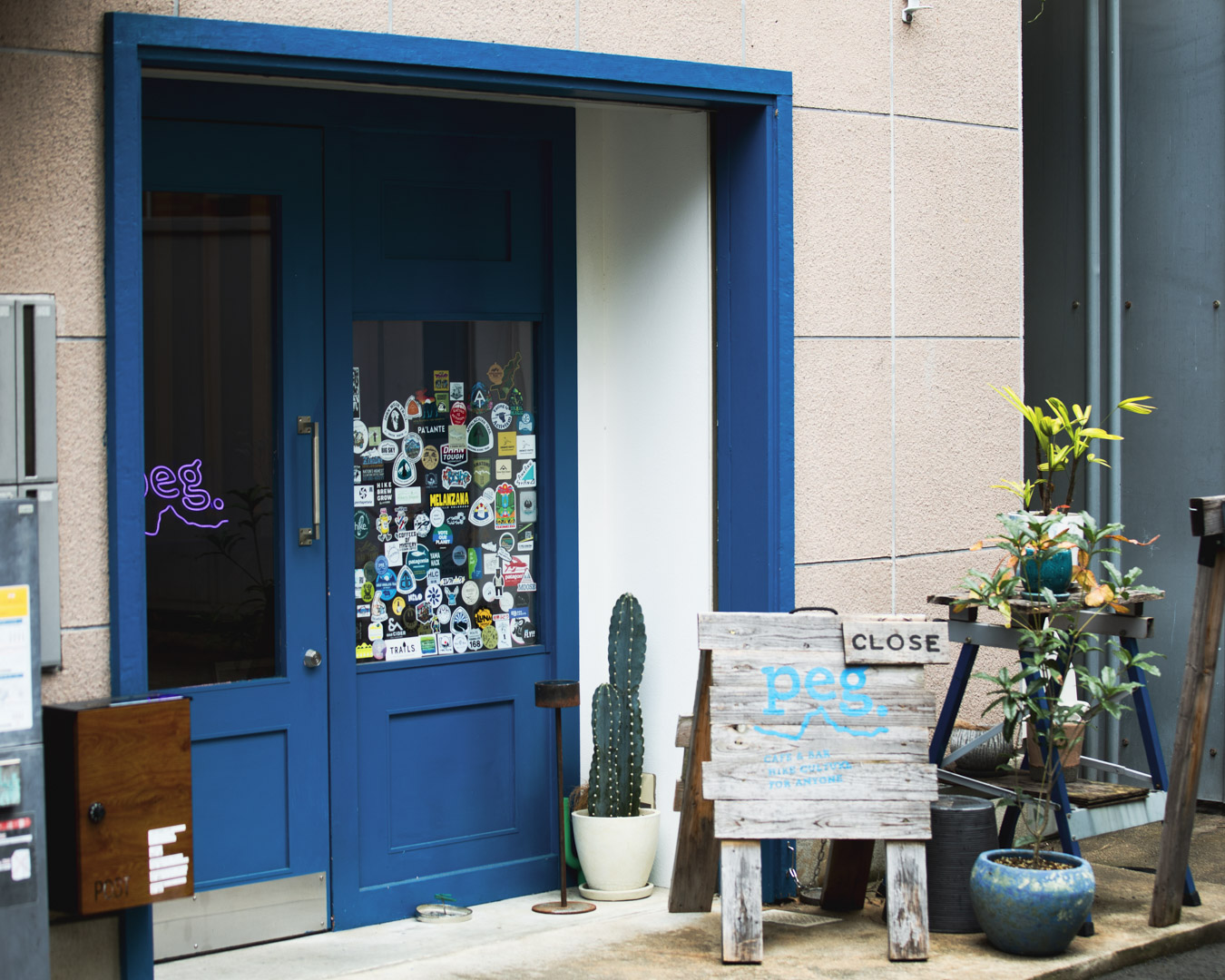
Masaru is the owner of cafe & bar peg., located in Osaka’s Fukushima ward (open from 19:00 until late at night).

At peg., Masaru practices self-reliance and enjoys the process of trying things on his own. Just as a peg is needed to pitch a tent but useless on its own, his cafe connects people and encourages relationships and shared experiences.
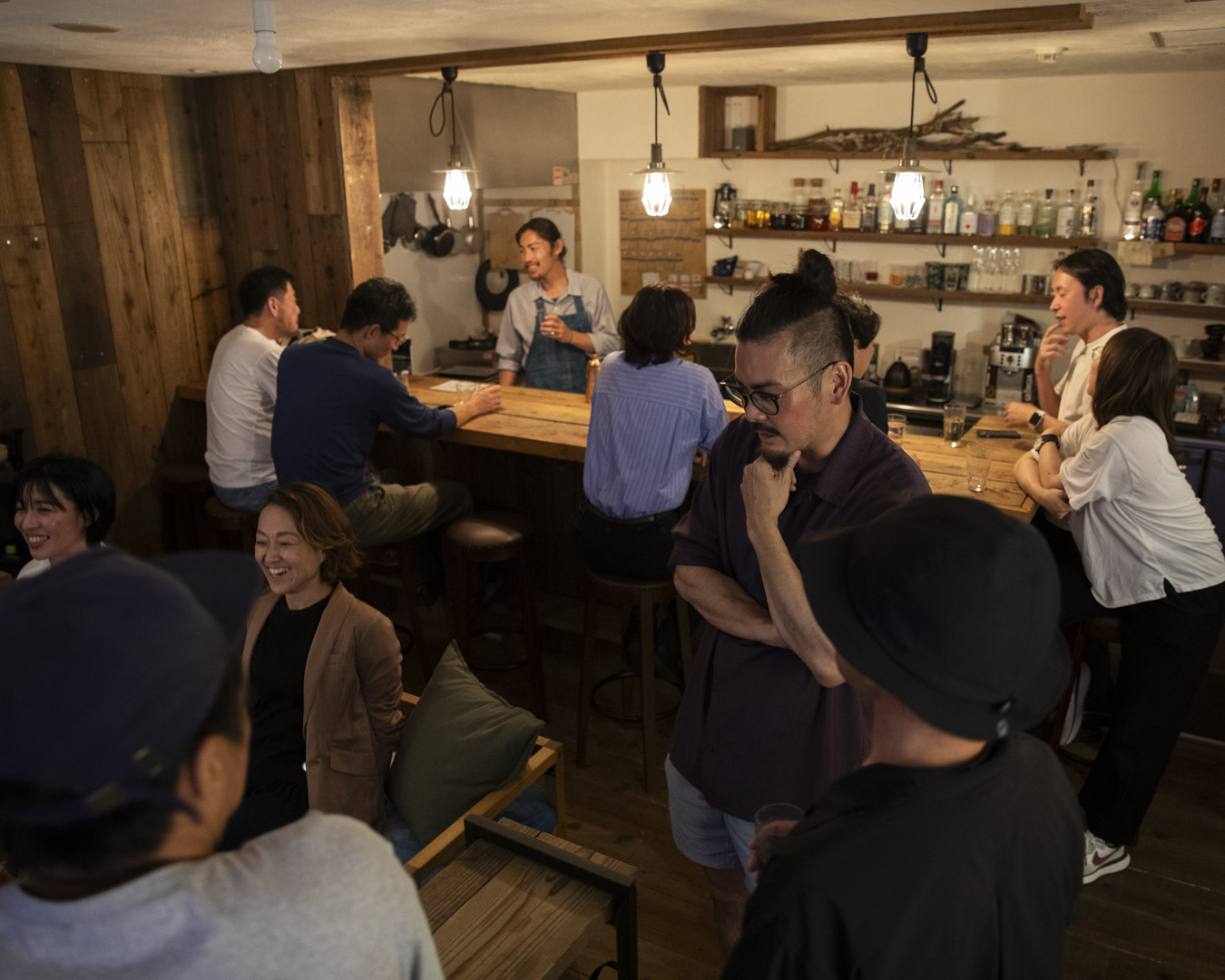
At night, Masaru’s cafe and bar attracts a community of hikers from around Japan’s western Kansai region. During the day, the space is run as a workplace for people with disabilities.
Without quite realizing it, Masaru was thinking like an ultralight hiker. His philosophical evolution led him to make practical changes.
At the start of the PCT, he’d prepared for every uncertainty, stuffing 25 kg of food, water, supplies and clothes into his backpack. “My pack was huge. Along the way, I met hikers with tiny backpacks. I’d ask them, ‘What do you have in there?’ And I learned from them. For instance, I didn’t need three T-shirts. Or: ‘What was I thinking bringing four pairs of underwear?!’ I lightened my load, physically and mentally. And it opened my mind. I think that’s why hikers appear more content as they near their destination,” he said. They’re filthy. They stink. But the expression they wear is one of satisfaction, he said.
After reaching the end of the PCT, Masaru decided that he would try for the Triple Crown –– walking not only the PCT but also the Appalachian Trail and Continental Divide Trail, a total of 12,700 km through 22 US states.
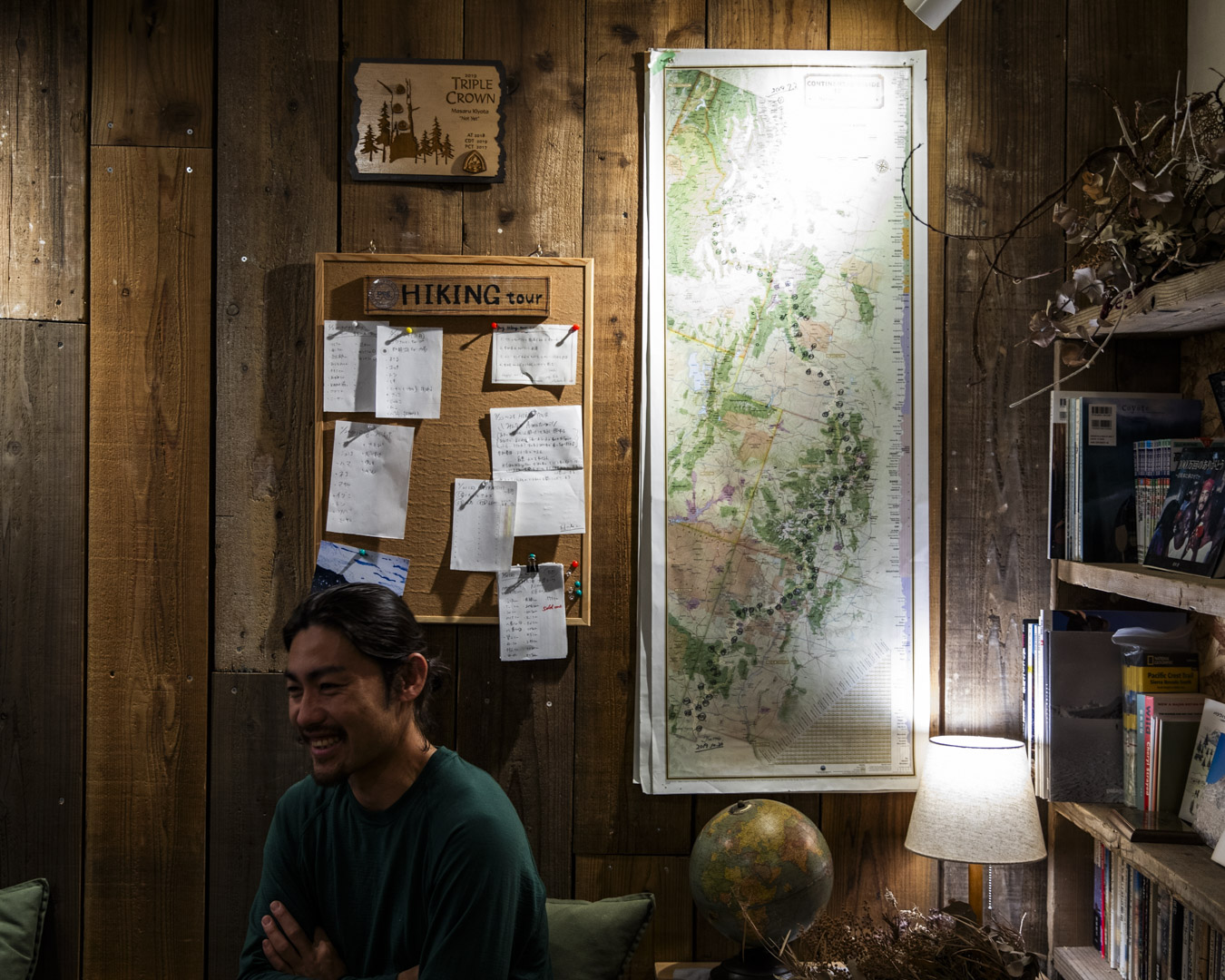
On a bulletin board at “cafe & bar peg.,” people post notes inviting others to join hikes and camping trips.
Essence of long trails
Since opening, peg. has become a haven and community gathering spot for hikers across the Kansai region, an area in western Japan that includes Kobe, Kyoto and Osaka. On one wall of th cafe, beneath Masaru’s Triple Crown plaque, hangs a bulletin board where customers post notes inviting others to join in on hikes and camping trips.
But as Masaru tells it, his identity as a long-trail hiker was years in the making. Before finding his calling, he was “not a very interesting person”. “As a child, I was extremely concerned about how others perceived me and thought that conforming was the best way,” he said.
At Kansai University, in Osaka, he tried out for the soccer program and served as secretary-general of the Kansai Students’ Soccer Federation, which oversees the regional university soccer leagues. But he was never good enough to play on the top varsity squad. Despite the disappointment, he clung to the idea that being part of one of the country’s top soccer programs would help him find a job. It didn’t initially. Rejections piled up from companies he applied to. With suggestions from classmates, he rewrote his résumé, and acceptances began pouring in. “It made me happy, but I also felt uneasy. I thought, ‘Is this what society is like?’” he recalled.
As he began a nine-month training period at his new job, Masaru felt adrift. He didn’t fit in. He feared that he was making a mistake, and wondered how long he’d stick with it. “When I talked to my coworkers, they would say, ‘This is just how it is’. Or: ‘This is about what you can expect to be doing for the salary.’ I started to fear that I’d end up just like them in 10 years. That’s when I began thinking about how I might escape.”
When he finished his training, Masaru made up his mind to quit. He fretted over how coworkers and friends would perceive his decision and the worry he would cause his parents, and told everyone that he was leaving on a cross-country cycling trip. “Saying ‘I’m going to bike around Japan’ felt like a way to cover up the fact that I was actually just running away. I can say it now, but back then, even when people told me, ‘That’s awesome! Go for it!’ I still had a guilty conscience about it,” he said.
While riding, he came across others who were on their own cycling trips. Some were on mama-chari (“mama bikes” for running errands around the city) or had fishing rods or guitars strapped on their bikes. The encounters made him think that what he was doing wasn’t extraordinary. He couldn’t shake the feeling that he was just running away from responsibility. “That’s when I thought, I can conceal that if I say, ‘I’m going to travel around the world,’” he said. He applied for the Working Holiday (WH) program in Australia –– “because it seemed like a place for determined people.” After earning enough money to fund a round-the-world trip, he set off.
Masaru returned from his globetrotting and immediately began thinking about long trails. He had just ¥500 ($3.50) to his name, and started working three part-time jobs, saving as much as he could. With a grant from Japanese mountaineering brand Mont-bell’s adventure and conservation fund, he cobbled together enough to cover his PCT trip. He no longer had the feeling that he was running away from something. “But to be honest, I still cared about what my parents thought,” he said.
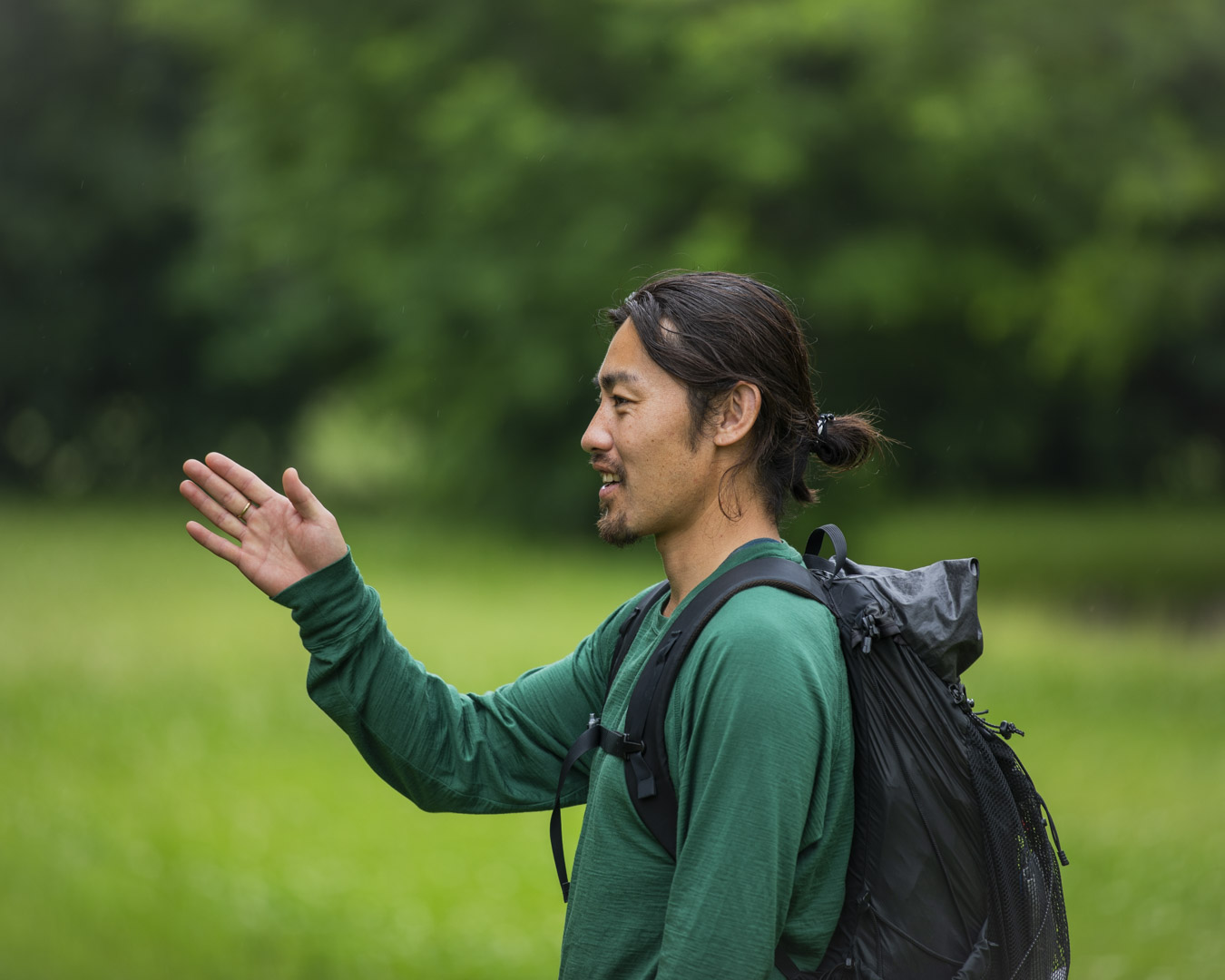
As Masaru’s initial feelings of escaping from society gradually faded, he began to see the path he wanted to take.
Once he finished the PCT, Masaru knew that he wanted to walk more trails. He returned home, worked and saved up, and in 2018, he set out on the Appalachian Trail (AT), tracing the Appalachian Mountains, from Maine to Georgia. The next year, he was on the Continental Divide Trail (CDT), along the Rocky Mountains, and every year since he’s headed off somewhere to tackle another long trail.
Not everyone has the wherewithal to do what Masaru does. “When I was traveling around Japan and other parts of the world, people often asked me questions like: ‘How do you afford it?’ ‘Aren’t you worried about the future?’ ‘Why are you doing this?’” His answer to them was simple: He wants to do it, and he wants it badly. “We all make choices continuously, right? And even though we make excuses, we choose the better option for ourselves. Like, when someone says, ‘I can’t travel because I have a family,’ what they’re really saying is, ‘I want to be with my family.’” he said.
So what keeps the walking interesting for Masaru? Curiosity about the unknown in the world. Self-discovery.
“They say, with hiking, the weight of your pack represents the size of your fears. As you get to know yourself, you develop confidence in what you need, and your pack gets lighter. The lighter your pack is, the easier it is to walk, which reduces the burden on your body. And with the extra space, you can add something special for yourself. The lighter load –– physical and emotional –– helps you figure out what feels good for you,” he said. Pause. “Carrying a heavy pack and pushing through is kind of satisfying, too,” he added, laughing.
So what replaced the fears that once filled his backpack?
“I don’t think anything has gone into that space yet,” he said. “It’s free.” Free seems the perfect way for Masaru to head off on his next long journey.
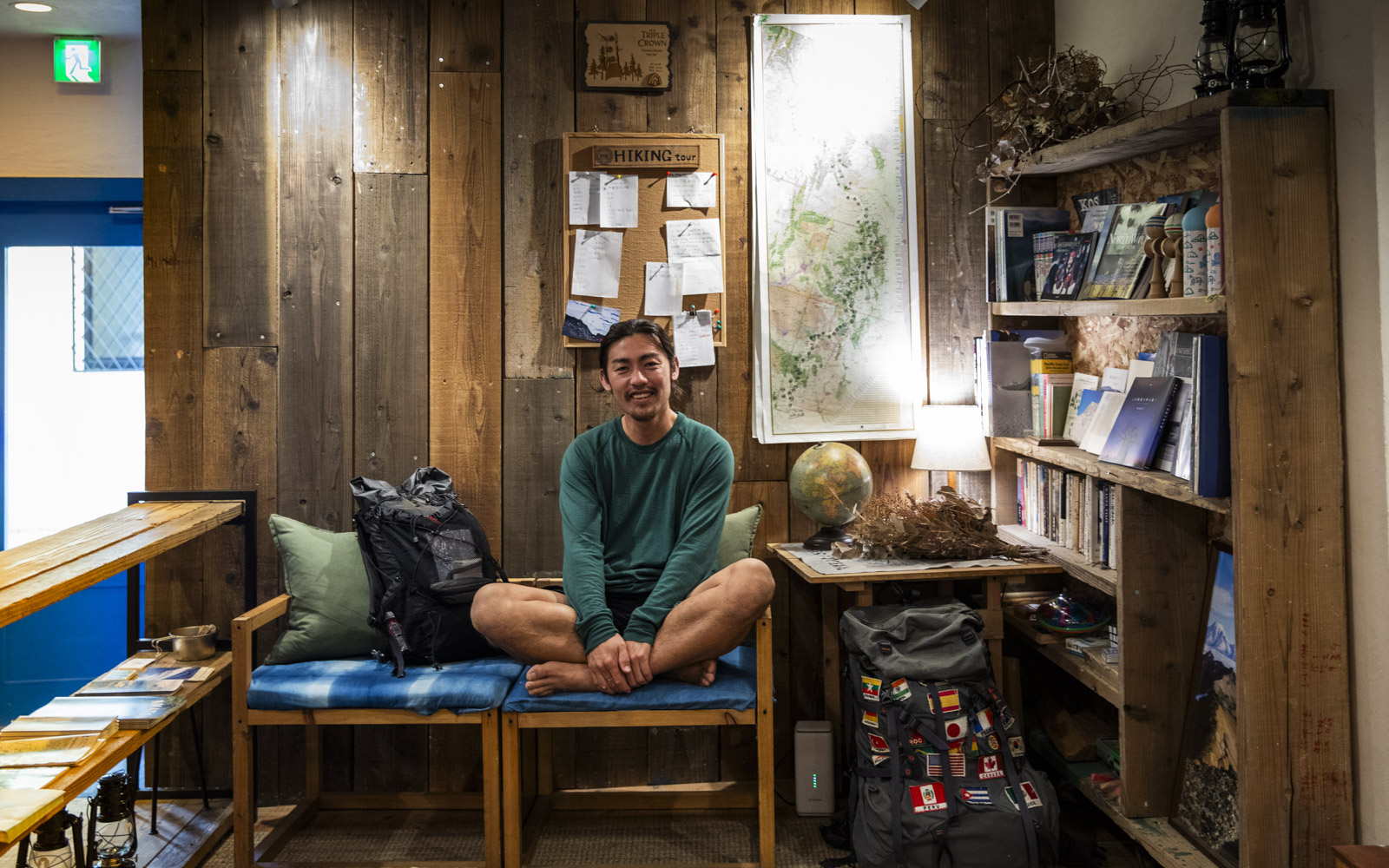
“I’m curious about the unknown in the world,” said Masaru, about his reason for continuing his travels.
Masaru’s Values and Practices
Values
“I cherish my connections with others.”
Practices
“Since I was young, my parents often told me: ‘Do properly what’s been asked of you.’ I believe this leads to trust in relationships.”
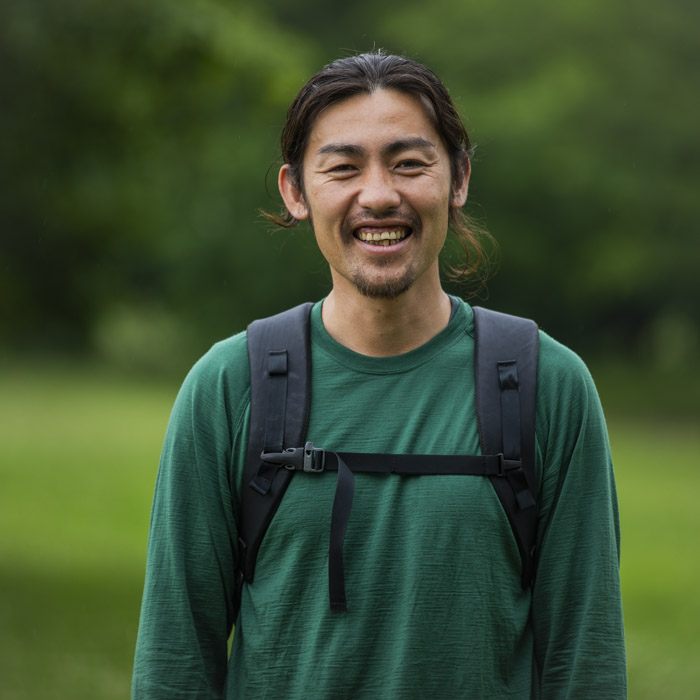
Long-distance hiker and owner of cafe & bar peg. in Osaka. He has traveled extensively around Japan and the world and completed the three major US long trails. He shares his experiences through podcasts and social media. Travel timeline: bicycle tour around Japan (2013); working holiday in Australia (2014); tour of the world (2015-2016); Pacific Crest Trail (2017); Appalachian Trail (2018); Continental Divide Trail (2019); Michinoku Coastal Trail (2020); Amatomi-Shinetsu Trail (2021); hike in Japan from the Pacific Ocean to Japan Sea (2022); Arizona Trail in the US (2023).







